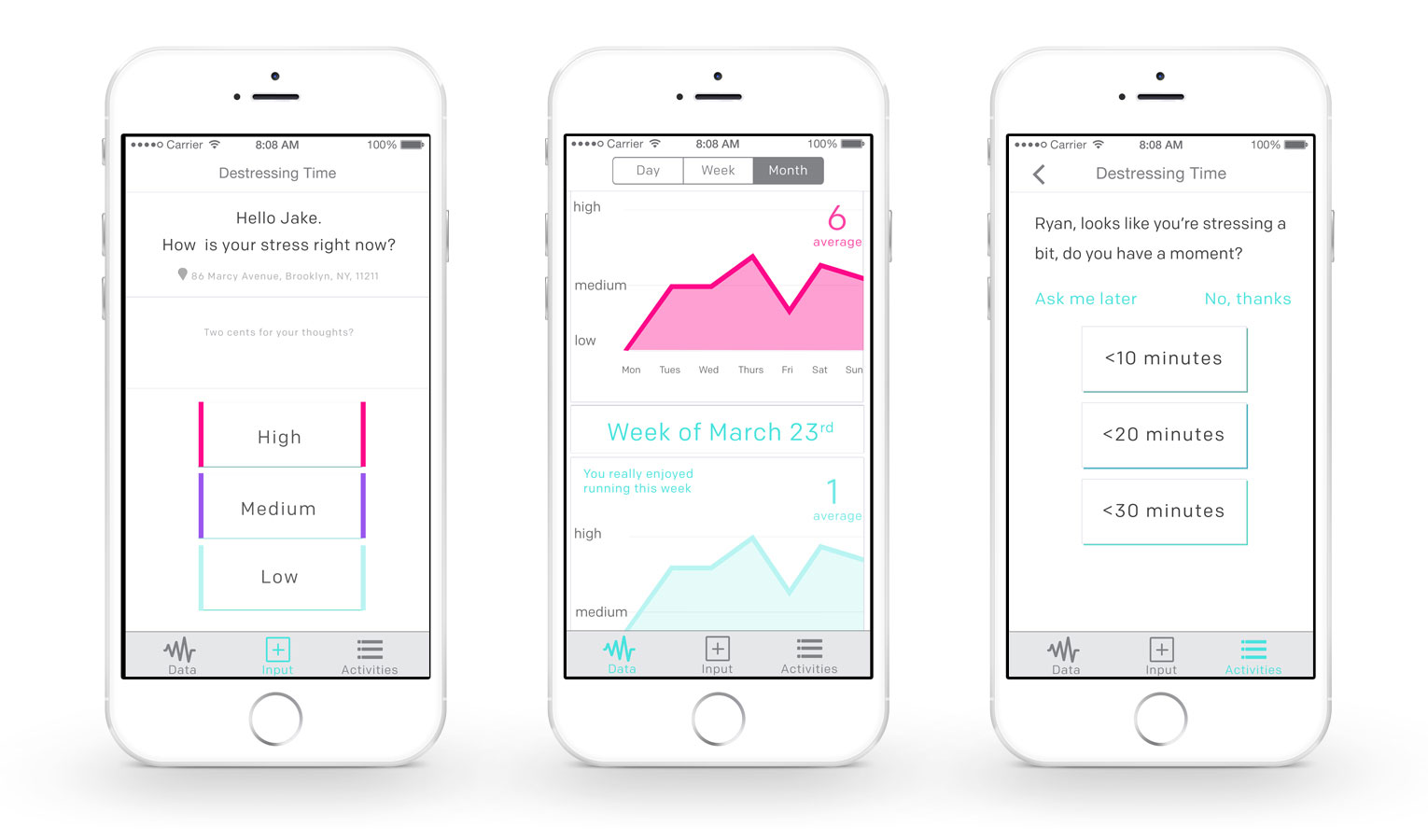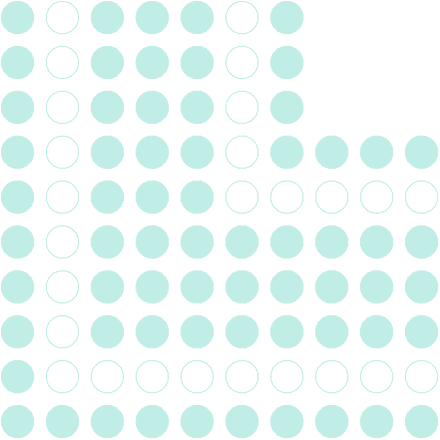Palette
Designing Mobile Interventions to Help Personalize Coping Strategies

Scott G Pobiner
Christopher Romero
Writing and ResearchLouisa Campbell
Ethan D Silverman
This thesis explores a role in mobile health application for stress coping strategies for those who suffer from acute and chronic stress in their daily lives. Informed by a qualitative study of experiences of people with low to medium general anxiety, I developed an intervention alert system for users to act upon their stress when they are experiencing high or chronic stress. I identify that people have very personalized ways of coping with stress, and that the moment of intervention can only be implemented based on the user’s availability. This tool encourage users to cope with their stress by suggesting stress-reducing activities through push notifications on the mobile phone.
Stress is a common experience that many if not everyone will experience at some point in their lives. Some people experience more stress than others, and everyone copes with stress in their own unique way. This project measures stress based on the user’s subjective evaluation of their levels by manually inputting data to get the application system to trigger interventions for the user.
In cognitive behavioral therapy, patients might be instructed to engage in relaxation techniques when feeling particularly stressed with the theory being that this behavioral change will in return positively impact one’s mood.
One preventative measure to avoid these negative health effects is to become more conscious of one’s stress, which can be done through self-tracking. In the field of mental health, tracking one’s thoughts is a common intervention to allow the user to identify the causal effects of one’s maladaptive thoughts, which in this case is stress.
Moreover, there has been a cultural shift in where people are increasingly connected to their data. Tracking and browsing data, music preferences, and social media interactions are just a few ways to quantify oneself, however, the emergence of health tracking tools have become more accessible for commercial use. There are 40,000 health-related mobile applications and 60% of U.S. adults track their weight, diet, or exercise. Because health data is more readily available for collection, tools and visualizations will become necessary to analyze that data in cross platforms.
Stress comes in different forms. Sometimes it is due to environmental factors, and sometimes it is due to one’s subjective experience in their ability to cope with a demand. As these are valid reasons why stress occurs, the best way to find a solution for people is to give them a tool to have flexible strategies. In that way, when someone is seeking to cope with any given situation, they can choose a solution that best suits their situation or try a new solution. Sometimes, the most effective coping strategy is to find a new strategy that fits that circumstance.
By using mobile technologies to create this coping tool, users have access to this tool at any given time. Initially, a user would input their activities that they find enjoyable and calming. Then when the user reaches high levels of stress or chronic stress during a given day, the application will alert the user to intervene within a certain time frame. By using this application as a coping method, users can address their stress immediately and experience less elongated stress. Furthermore, it also serves as a preventative measure for future anxiety disorders.

Crystal Tong
My name is Crystal Tong and I'm originally from Los Angeles, CA. I majored in Psychology at Adelphi University. Currently, I am studying at Parson’s MFA Design and Technology program where I will be graduating in 2015 and looking forward to working as an interaction designer. I believe in creating user experiences that touch people’s lives through studying their behaviors around touch interfaces. I’m also curious about wearable technology in the field of mental health. I believe that prototyping and experimenting with new technologies will take us in great places in the future and I look forward to discover emerging new behaviors along the way. On my free time, I love doing outdoor activities such as kayaking, running, biking and planning mini road trips.
